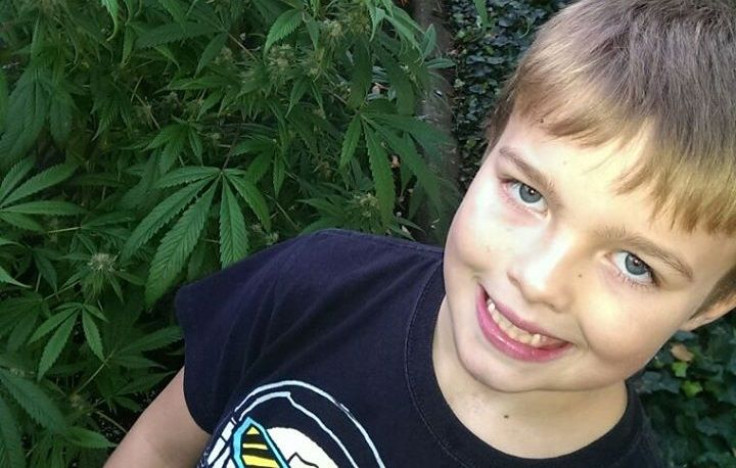Cannabis Oil Helped Stop 8-Year-Old Forrest Smelser's Seizures When Other Drugs Couldn't: What Is CBD?

A go-to argument for marijuana opponents is that its legalization will lead to more use among young teens and kids, as it becomes more accessible. But while all-out legalization is one issue, what about when those kids need it medicinally? It’s probable many of these opponents would be against that too, but they’re not seeing the benefit it brings to some kids, either. Eight-year-old Forrest Smelser, from Eugene, Ore., is one of those kids, and is among the 467,711 children living with epilepsy in the United States.
Forrest was diagnosed with epilepsy only a week after his eighth birthday. The disease causes recurrent seizures that range in severity; an epileptic seizure can cause anything from a blank stare or rapid blinking to unconsciousness, rigidity and muscle jerks, and confusion. On some of Forrest’s worst days, he’d experience these seizures every 15 minutes, KOMO News reported. “If he has a seizure that lasts longer than three minutes, we’re venturing into brain damage territory,” his mom, Tanesha Smelser, told KMTR Eugene.
Doctors prescribed Forrest Trileptal, an anti-seizure medication. But although his seizures had stopped, he was experiencing side effects the Food and Drug Administration (FDA) notes occur in about one of every 500 people. “He would scream, he would fight, he would punch himself,” Melser said. Combined with his anger, he also had suicidal thoughts, and once even attempted it. This was her family’s breaking point, and they began looking into giving Forrest medical marijuana.
Nine weeks into being 8, and Forrest’s life is looking a lot calmer, but it’s not because he’s high all the time. The medical marijuana he gets comes in a capsule filled with marijuana-infused oil. Provided by TJ’s Organic Gardens, a Eugene-based medical marijuana farm that’s providing the marijuana for free, it’s a special strain of marijuana containing mostly cannabidiol (CBD), the second most active ingredient in marijuana — behind the high-inducing THC (tetrahydrocannabinol). But unlike THC, it skips the high and provides analgesic, anti-inflammatory, and anti-epileptic effects. In one 2013 study on CBD’s effect on epileptic kids, 16 of 19 parents “reported a reduction in their child’s seizure frequency.” (Most studies on CBD’s effects are small; you can find a list of them here.)
Forrest’s pills are produced through an organic ethyl alcohol extraction process, after which the extracted oil is then mixed with another edible oil, and put into the capsules. Forrest takes three each day. “Now that I’m on this medication, I feel like a normal boy,” he told KMTR. Roughly 195 of the 69,000 medical marijuana patients in Oregon are under the age of 18, according to the Oregon Health Authority.
“I feel like it’s saved his life — it has saved his life,” Smelser said. “I know it sounds scary, and I know it sounds unconventional, but it’s working. It’s working!”



























